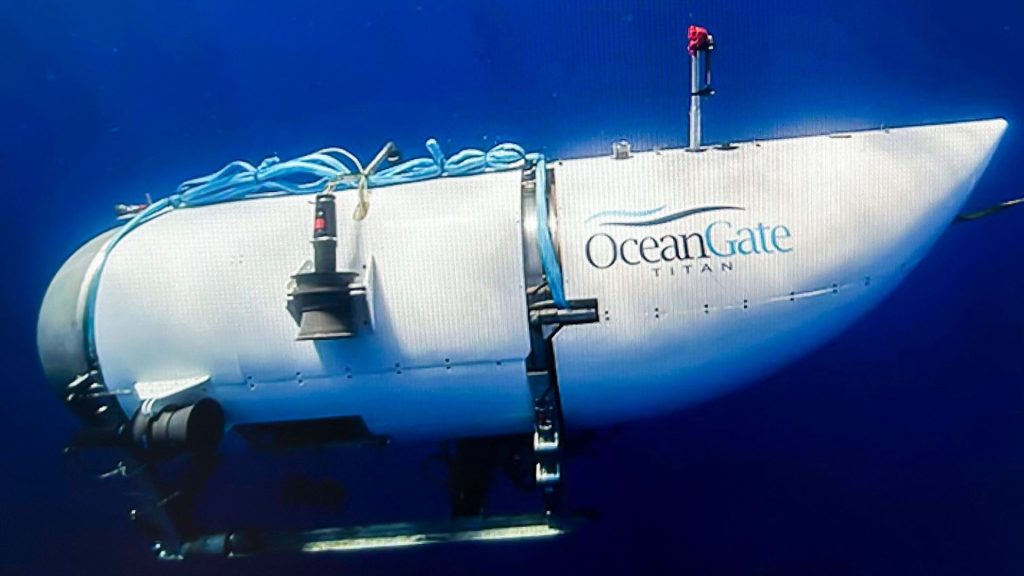The recent investigation by the U.S. Coast Guard into the Titan submersible disaster has unveiled some unsettling truths. OceanGate, the company operating the Titan, is under fire for ignoring safety warnings and having flawed protocols. The tragic incident, which resulted in the loss of five lives, has been deemed preventable by the extensive 335-page report.
Among the victims were Stockton Rush, OceanGate’s CEO, along with French diver Paul-Henri Nargeolet, British explorer Hamish Harding, and Pakistani businessman Shahzada Dawood and his son, Suleman. The report highlights significant discrepancies between OceanGate’s written safety protocols and their actual practices. These inconsistencies played a crucial role in the disaster.
The U.S. Coast Guard’s investigation revealed that OceanGate exploited regulatory loopholes to operate the Titan outside established deep-sea guidelines. This strategic evasion allowed the company to bypass essential safety checks. The submersible’s design, certification, and maintenance were all identified as inadequate.
Jason Neubauer, chair of the Marine Board of Investigation, emphasized the need for reform in private deep-sea exploration. He pointed out the necessity for better oversight and clear regulatory options for companies venturing into uncharted territories. The report also speaks of a toxic workplace culture at OceanGate, where raising safety concerns was discouraged.
Employees faced threats of termination if they voiced safety issues, creating an environment where warnings were consistently ignored. OceanGate’s manipulation of its scientific partnerships and favorable reputation helped it evade regulatory scrutiny. This lack of oversight contributed to the eventual tragedy.
The haunting footage released by the Coast Guard shows the Titan’s wreckage, serving as a grim reminder of the disaster. Despite the evidence, OceanGate representatives have remained silent since the report’s release. Their operations were suspended in July 2023, and they have not commented on the findings.
Legal challenges are now mounting against OceanGate, with ongoing lawsuits and calls for stricter regulation of private underwater expeditions. The investigation was hindered by a lack of subpoena power, limiting access to crucial video evidence. Many witnesses were not U.S. citizens, complicating the process further.
The report underscores the need for international cooperation in regulating deep-sea exploration. With no cohesive international framework, companies like OceanGate can operate with minimal oversight. This loophole needs to be addressed to prevent future tragedies.
The Titan disaster has renewed discussions on the safety of private deep-sea ventures. The Coast Guard’s findings serve as a call to action for tighter controls in this burgeoning industry. It is crucial to learn from these mistakes to ensure the safety of future expeditions.
The Marine Board of Investigation’s report has set the stage for potential reforms in deep-sea exploration. The details of OceanGate’s operational failures paint a clear picture of negligence. It’s a sobering reminder of the risks involved when corporate interests overshadow safety.
The Titan’s implosion has sparked a debate on the ethical responsibilities of companies in high-risk industries. The Coast Guard’s report is a wake-up call for both regulators and operators. It is imperative to prioritize safety to avoid similar tragedies in the future.
The families of the victims are seeking justice, as lawsuits against OceanGate continue to unfold. This tragic event has highlighted the urgent need for comprehensive safety regulations. The lessons learned from the Titan disaster are crucial for the future of deep-sea exploration.
As the investigation concludes, the focus now shifts to implementing necessary changes. The Coast Guard’s report is a critical step toward improving safety standards. Ensuring that such a disaster never happens again is now the top priority.
OceanGate’s silence following the report speaks volumes about their accountability. The company’s failure to adhere to safety protocols has had devastating consequences. The Titan tragedy stands as a testament to the importance of rigorous safety measures.
The deep-sea exploration industry must take heed of the Coast Guard’s findings. Implementing stricter regulations and oversight is essential moving forward. The safety of explorers and crew should never be compromised for the sake of profit.
The Titan submersible disaster has left a lasting impact on the world of deep-sea exploration. The Coast Guard’s investigation has shed light on the critical need for change. As the industry grows, ensuring the safety of all involved is paramount.
The lessons from the Titan tragedy must guide future endeavors in deep-sea exploration. The report’s revelations are a call for action to prevent similar incidents. The responsibility lies with both regulators and operators to uphold the highest safety standards.
The haunting memories of the Titan implosion serve as a reminder of the risks associated with deep-sea exploration. The Coast Guard’s report has paved the way for crucial reforms. It is now up to the industry to take these findings seriously and implement necessary changes.



